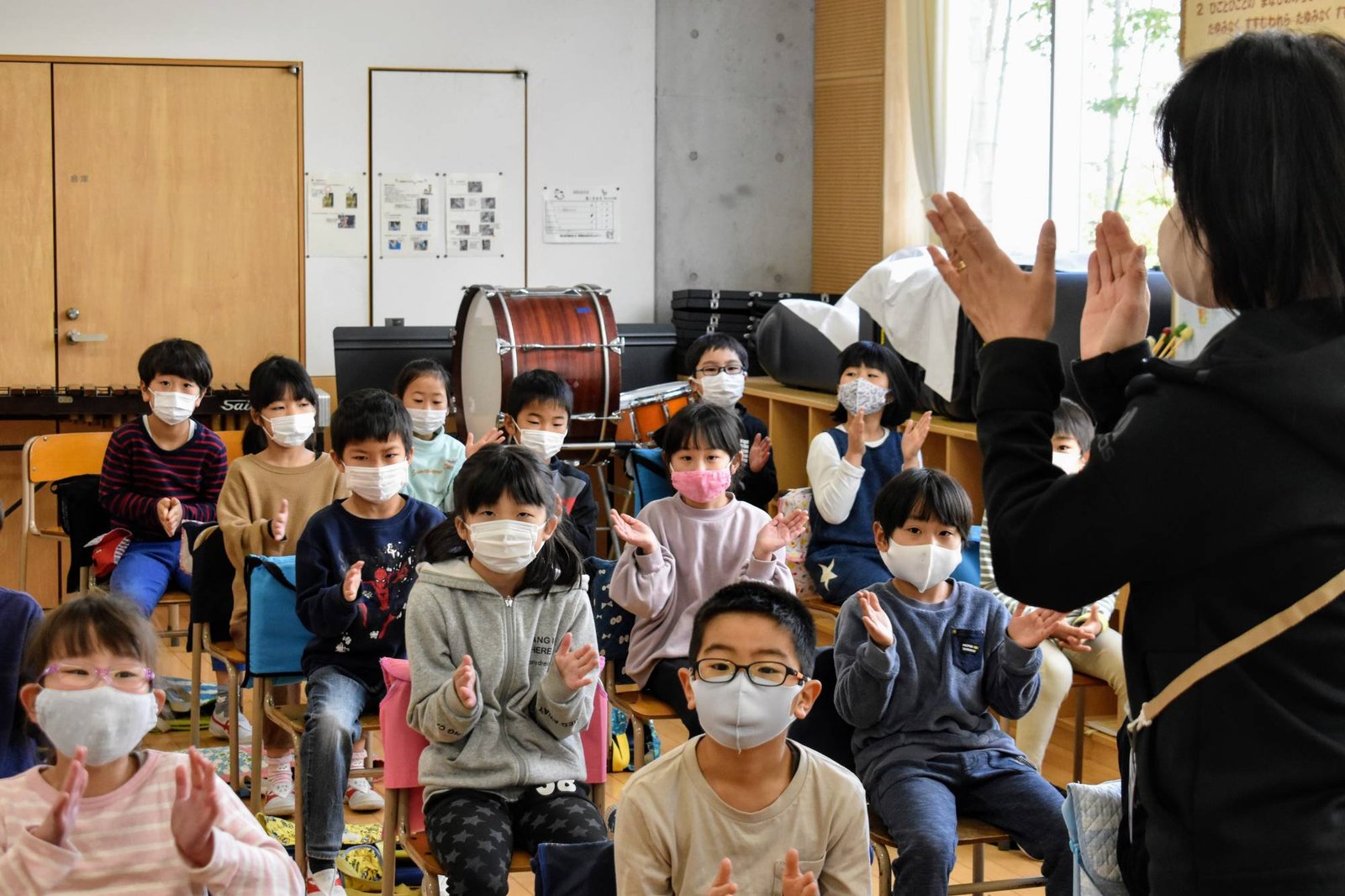The Japanese education system is renowned worldwide for its excellence and efficiency. With a strong emphasis on discipline, respect, and academic rigor, Japan has created an educational model that many countries look to for inspiration. At EdTrips Global, we recognize the value of learning from such systems, and our international education study trips for educators and education leaders provide a unique opportunity to gain firsthand experience of this remarkable system.
Structure of the Japanese Education System
Japan’s education system is divided into several stages: kindergarten, elementary school, junior high school, senior high school, and university. Compulsory education spans nine years, from elementary school (six years) through junior high school (three years). The structured nature of this system ensures a well-rounded education for all students.
Kindergarten (Yochien)
Children aged three to six years attend kindergarten, where the focus is on social skills, basic numeracy and literacy, and physical education. In addition to these fundamental areas, kindergartens in Japan emphasize the development of good habits and positive attitudes towards learning. Activities such as arts and crafts, music, and play are integral to the curriculum, providing a balanced approach that nurtures creativity and expression. Teachers in kindergartens are highly trained and dedicated to creating a supportive and stimulating environment.

Elementary School (Shogakko)
Starting at age six, children attend elementary school for six years. The curriculum includes Japanese language, mathematics, science, social studies, music, arts and crafts, and physical education. Moral education and integrated studies are also crucial components, emphasizing the development of well-rounded individuals. Elementary schools aim to instill fundamental academic skills and foster an appreciation for learning. Extracurricular activities and community involvement are also encouraged, promoting a sense of social responsibility and teamwork among students.
Junior High School (Chugakko)
For the next three years, students continue their education at junior high school. The subjects become more specialized, with an additional focus on English language studies. Students also begin participating in club activities, which play a significant role in their personal and social development. These years are critical as students prepare for high school entrance exams. The education at this stage aims to deepen knowledge and enhance critical thinking skills, providing a robust foundation for future academic pursuits.


Senior High School (Koko)
While not compulsory, most students choose to attend senior high school for three more years. The curriculum is diverse, offering both general and vocational tracks. High school education in Japan prepares students either for university or for entering the workforce directly. Academic performance during these years is crucial, as it determines university entrance opportunities. Extracurricular activities, including sports and cultural clubs, continue to play an important role in developing students’ skills and interests.
University (Daigaku)
Higher education in Japan is highly competitive. Students must pass rigorous entrance exams to gain admission. Universities offer a broad spectrum of courses, with an emphasis on research and development, contributing significantly to Japan’s innovation and technological advancements. University life in Japan is not just about academics; it also includes various clubs and activities that help students develop soft skills and professional networks. Graduates from Japanese universities are well-prepared to enter the global workforce, contributing to diverse fields.


Key Features of the Japanese Education System
- Discipline and Respect
Japanese schools are known for their strict discipline. Students are taught to respect their teachers, peers, and school environment. This respect extends to a communal responsibility for cleanliness and order, with students participating in daily cleaning activities. This practice fosters a sense of pride and ownership in their surroundings.
- Academic Rigour
Academic excellence is a hallmark of the Japanese education system. The curriculum is challenging, and students are expected to maintain high standards. The focus on continuous assessment ensures that students keep up with their studies and identify areas for improvement promptly.
- Extracurricular Activities
Extracurricular activities, particularly club activities, are integral to the Japanese educational experience. These activities help in the holistic development of students, promoting teamwork, leadership, and time management skills. From sports to cultural clubs, students can explore various interests and develop lifelong skills.
- Moral Education
Moral education is another cornerstone of the Japanese education system. Schools emphasize the importance of ethical behaviour, community involvement, and social responsibility. This focus on moral education helps in nurturing conscientious and responsible citizens.
Experience the Japanese Education System with EdTrips Global
At EdTrips Global, we offer educators and education leaders the opportunity to explore the Japanese education system through our meticulously planned international study trips. These trips provide invaluable insights into the practices and philosophies that make Japanese education so effective. Participants will visit schools, interact with Japanese educators, and immerse themselves in the culture that underpins the country’s educational success.
- Benefits of International Study Trips
Participating in an international education study trip with EdTrips Global offers numerous benefits:
- First Hand Experience: Gain direct exposure to the Japanese education system and understand its nuances and methodologies.
- Professional Development: Enhance your professional knowledge and skills by learning from a different educational context.
- Cultural Exchange: Experience the rich cultural heritage of Japan and its influence on education, fostering a deeper understanding of global perspectives.
- Networking Opportunities: Build connections with fellow educators and education leaders from around the world, creating opportunities for collaboration and exchange.
- Inspiration and Innovation: Bring back innovative ideas and practices that can be adapted to your educational context, enriching the learning experience for your students.

Join Us on a Journey of Discovery
As a leading brand in organizing international education study trips, EdTrips Global is dedicated to providing enriching and transformative experiences for educators and education leaders. Our trips to Japan offer a unique chance to delve into one of the world’s most admired education systems, gaining insights and inspiration that can elevate your educational practices.
Begin this journey with EdTrips Global and discover the excellence of the Japanese education system. For more information and to book your spot, visit our website at edtripsglobal.com.
By understanding and experiencing the Japanese education system, educators can bring back valuable lessons to their own schools and communities, fostering a global exchange of knowledge and best practices. Join EdTrips Global on this incredible journey and take your educational leadership to new heights.









